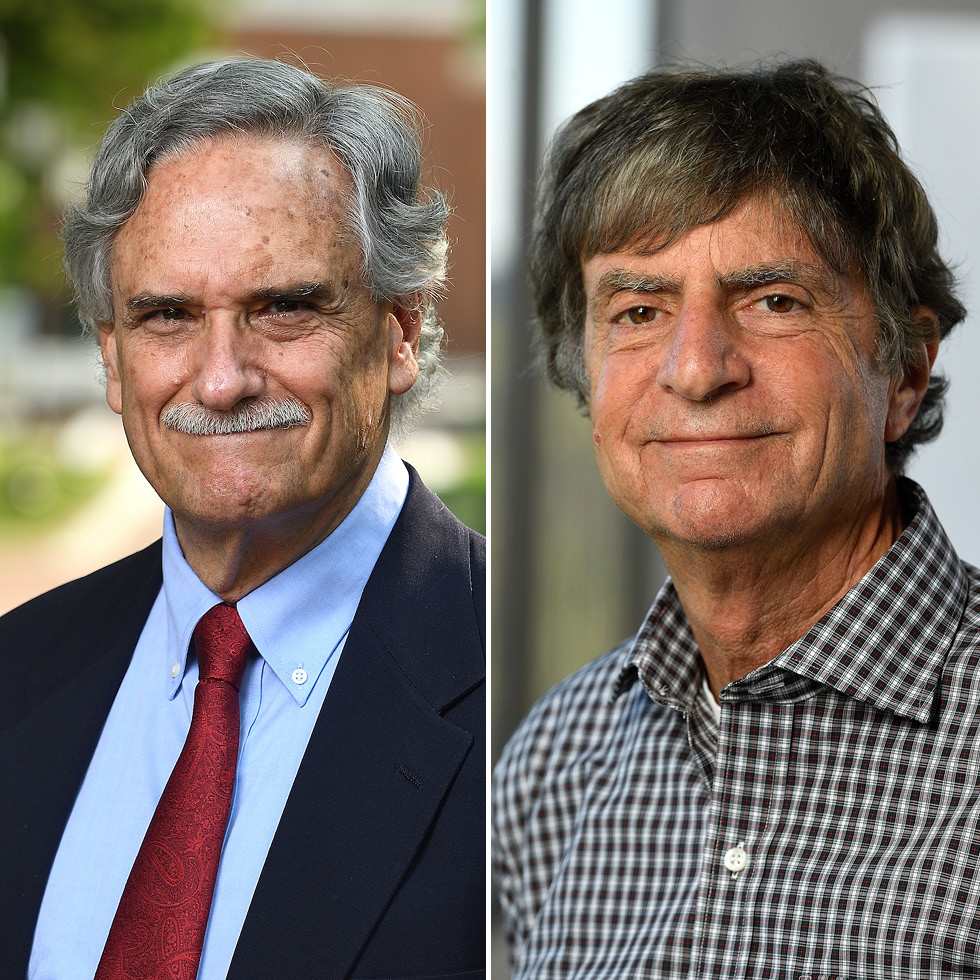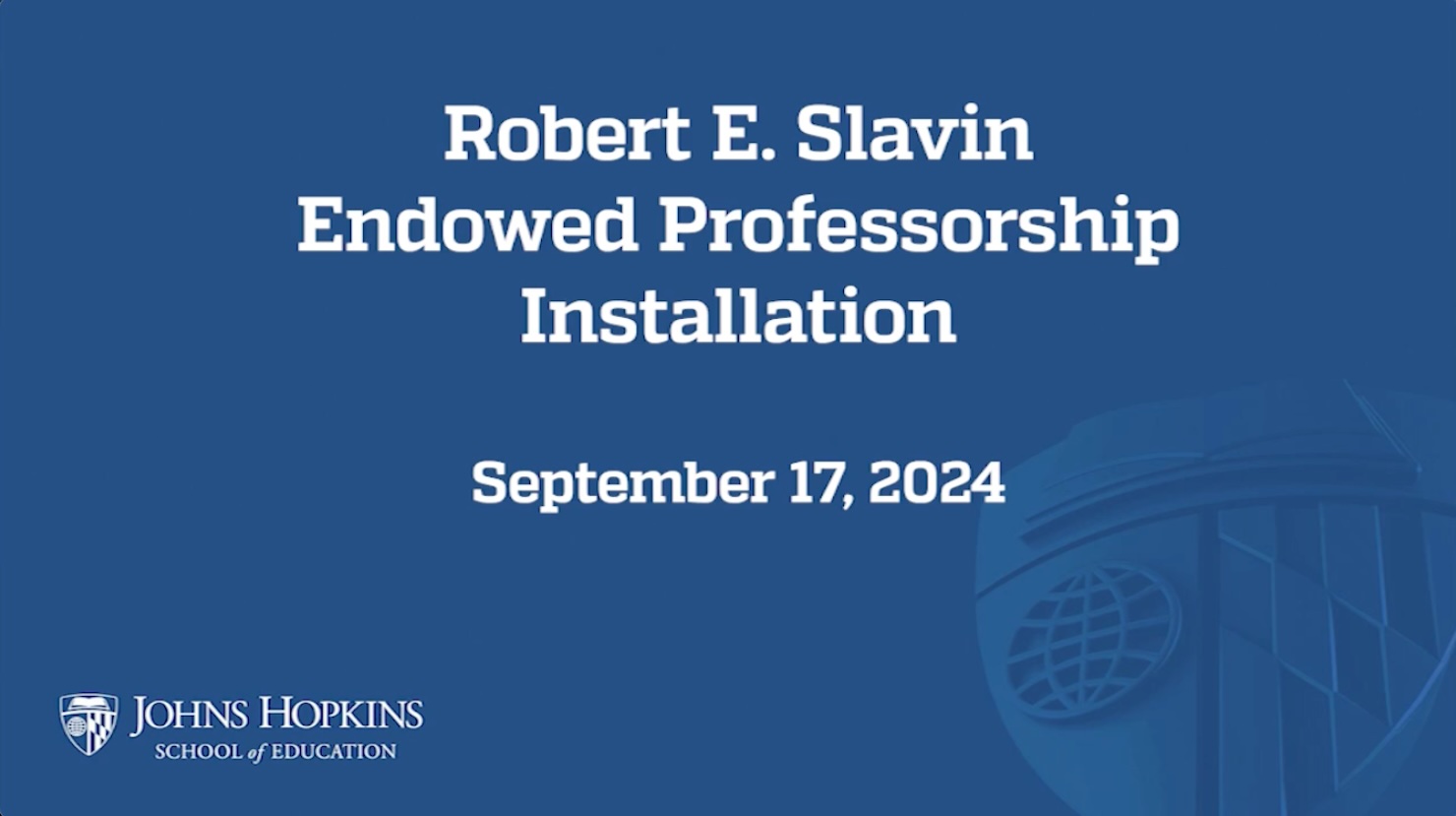Steven M. Ross, executive director of the Center for Research and Reform in Education, has been installed in the School of Education’s first-ever Robert E. Slavin Endowed Professorship, a chair established in honor of his late friend and collaborator.
The Johns Hopkins School of Education has named Professor Steven Ross, a noted education researcher and executive director of the Center for Research and Reform in Education, to be its first Robert E. Slavin Endowed Professor. Ross is a longtime friend and collaborator of the late Robert Slavin, who founded CRRE and several other high-profile education-related initiatives within the School of Education. Slavin died in 2021.
Ross is respected for the breadth and depth of the educational topics he has studied over the years, often in collaboration with Slavin. He is the author of six textbooks and over 140 peer-reviewed scientific papers, in research topics as varied as educational technology and at-risk learners.
He is also a sought-after public speaker who lectures frequently on school programs and educational evaluation, and he has served in editorial roles on several professional journals. Ross has testified before Congress, advised the National Science Foundation, and served as technical adviser on wide-ranging national initiatives on topics such as out-of-school learning; instruction in science, technology, engineering, and mathematics; technology integration; and social-emotional learning. In 2019, he received the Michael Spector Career Achievement Award from the Association of Educational Communications and Technology.
For Ross, the Slavin Professorship is as much a testament to their personal friendship as it is to their professional collaboration. “Bob Slavin was a groundbreaking educator, as good, or perhaps better, at advancing breakthrough ideas as he was at producing the evidence, if that’s possible,” a humbled Ross said of the recognition.
If Slavin were the Steve Jobs of CRRE, a master communicator who preached on the enduring value of quantitative evidence in evaluating education policies and reforms, Ross was the Steve Wozniak, the under-the-hood, nuts-and-bolts researcher who fed Slavin a steady stream of research that fueled Slavin’s deep trust in evidence-based programs.
Among education reformers, Robert Slavin was a titan. A sociologist by training, Slavin stood for decades at the forefront of what he called “evidence-based” reform: practices and programs that were demonstrably proven through data to improve educational outcomes. Such reforms “just work,” Slavin was fond of saying while pointing doubters to the evidence he used to back up his words.
When Slavin died suddenly over a spring weekend three years ago, the global education research community felt an undeniable void. The loss was even more palpable at the School of Education, where Slavin worked for the bulk of his career after earning his doctorate in social relations from Johns Hopkins in 1975. The school now has a permanent endowment befitting the stature of one of its most revered and widely recognized faculty members.
Ross is ready to assume the mantle of his friend’s work. “To step into those shoes and to continue that legacy is both an honor and a challenge,” Ross concluded. “I plan to work every day to uphold the values and ideals that drove Bob and me—a deep faith that education is among the most important endeavors humans can undertake and a firm belief that data will show us the way.”
Ross was installed in the Robert E. Slavin Endowed Professorship on Sept. 17, at a full-to-capacity formal ceremony at the Johns Hopkins Mount Washington Conference Center, hosted by Johns Hopkins President Ron Daniels and School of Education Dean Christopher Morphew.
“In education, the stakes are very high: We’re not just trying to save lives—we’re trying to save futures,” said Morphew in his opening remarks at the event. “And that’s what this professorship is about: the future. It ensures a continuing source of financial support for leaders in the field like Steve Ross and allows us to acknowledge and uplift their work… in the expectation of improved educational outcomes for all children.”


